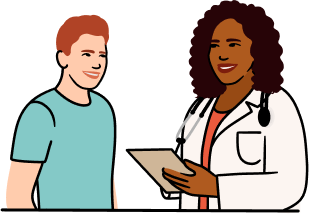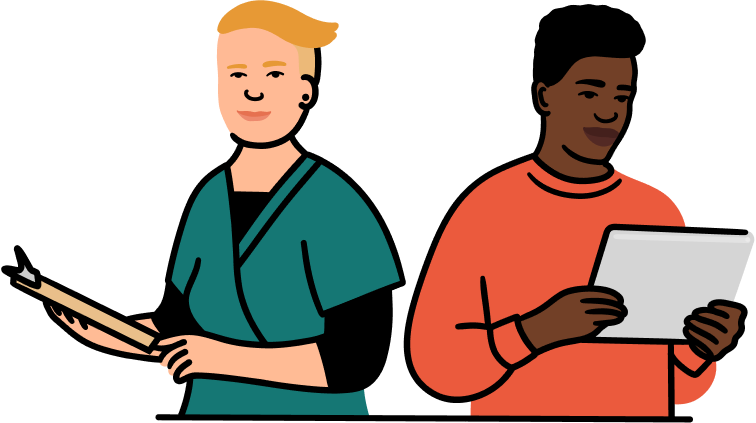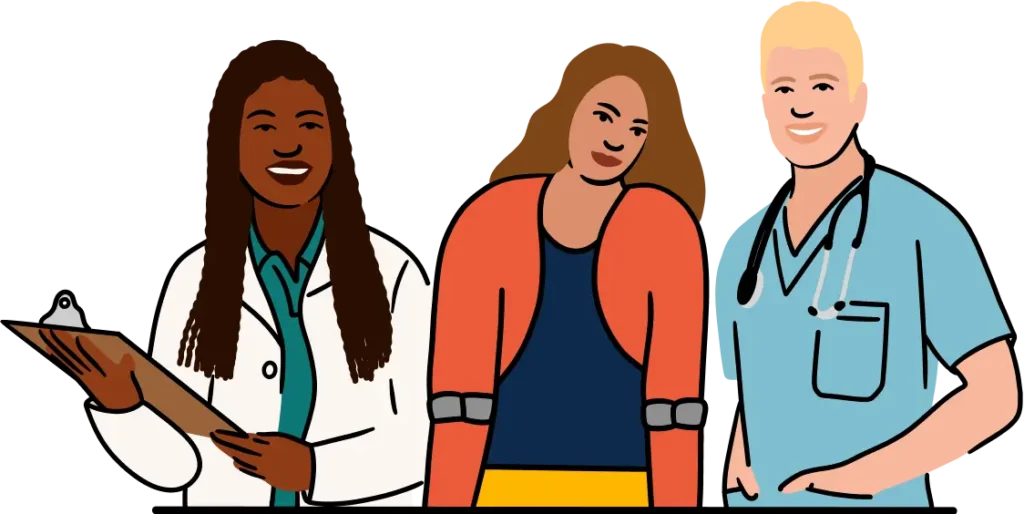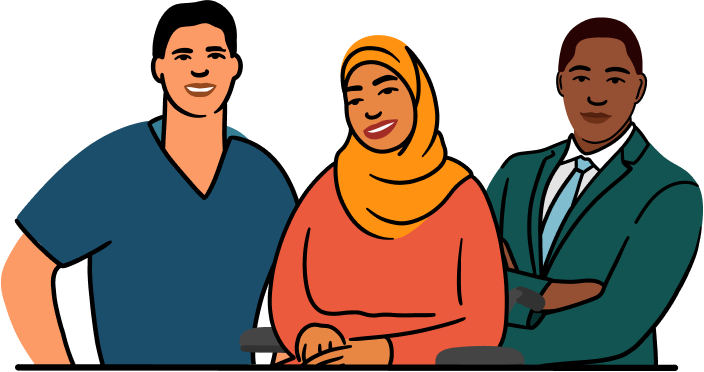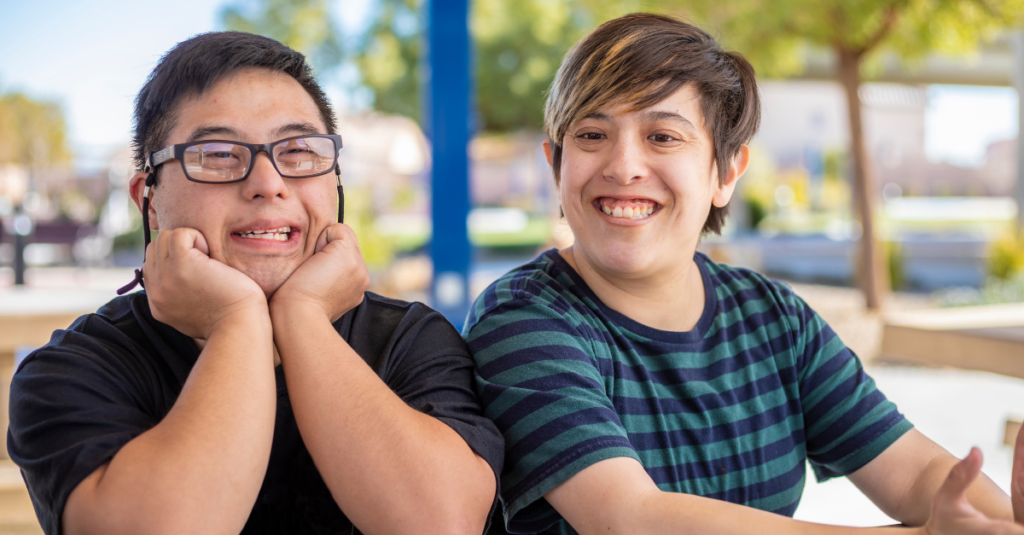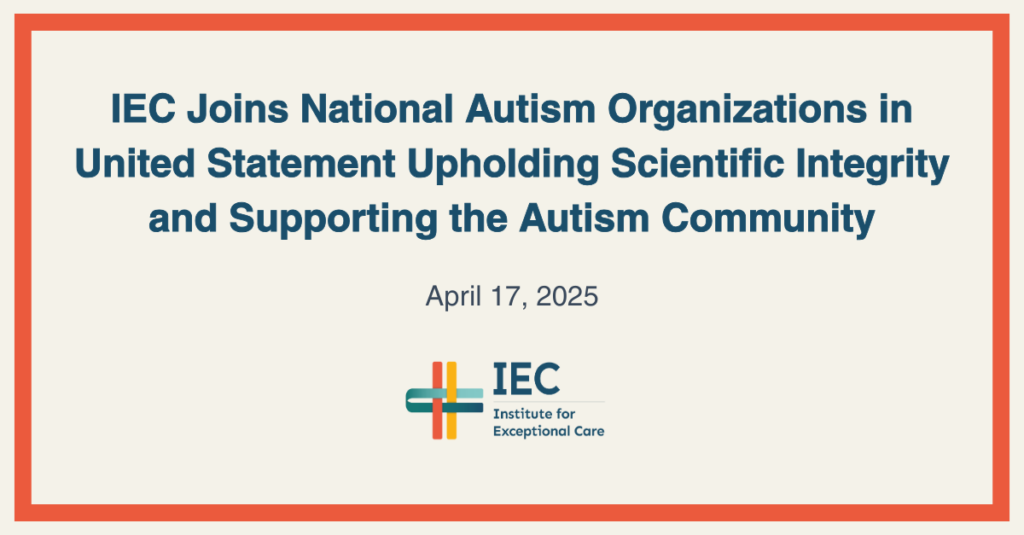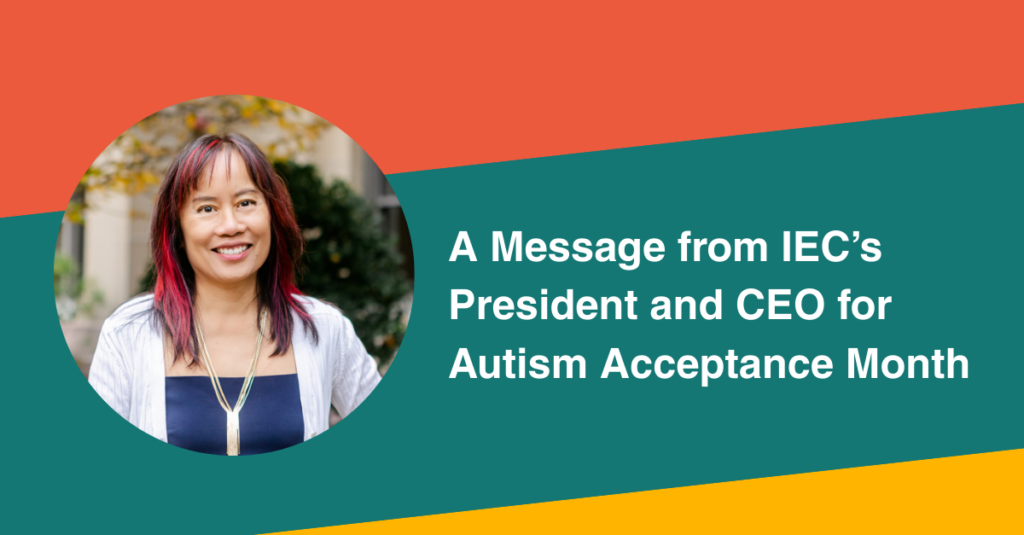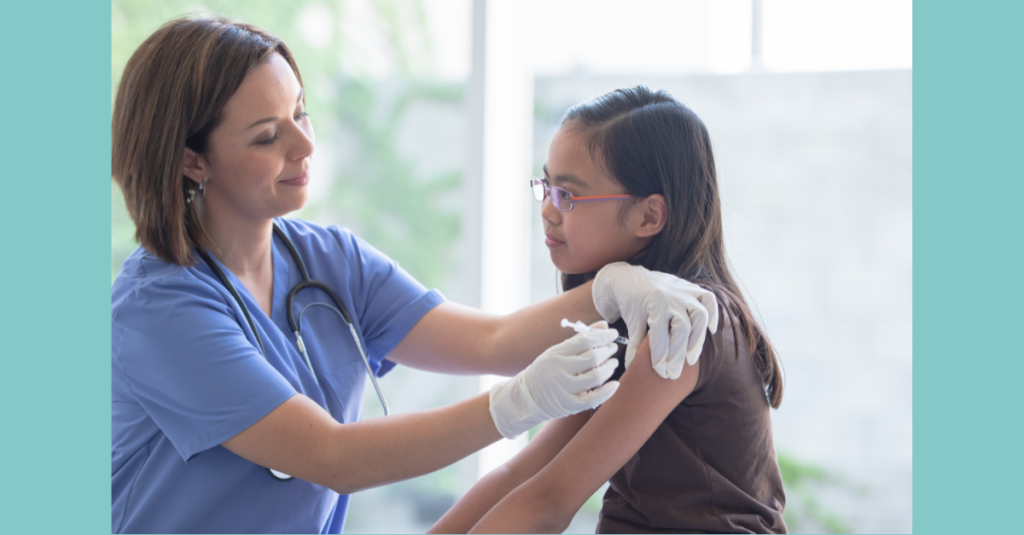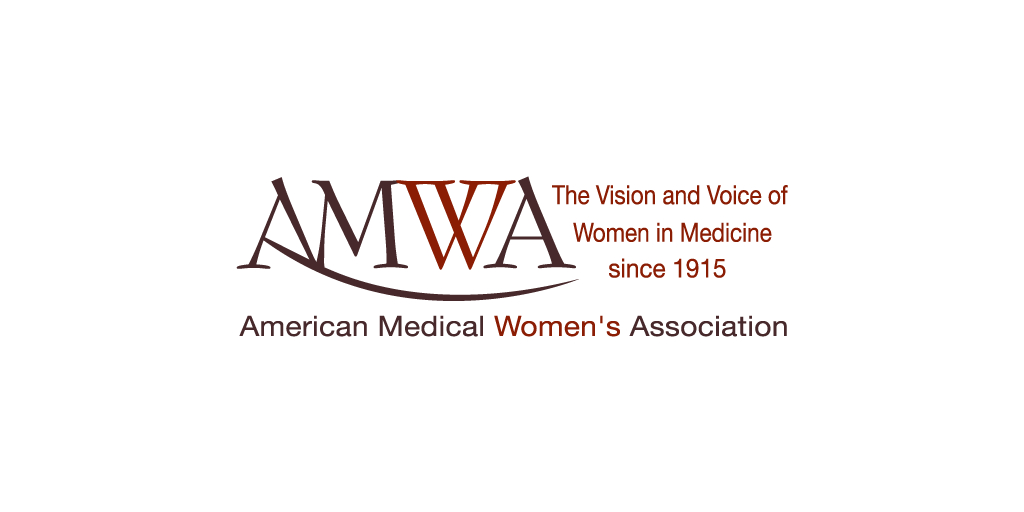IEC (Institute for Exceptional Care)
We Make Healthcare Better And Safer For People with intellectual and/or developmental disabilities (IDD).
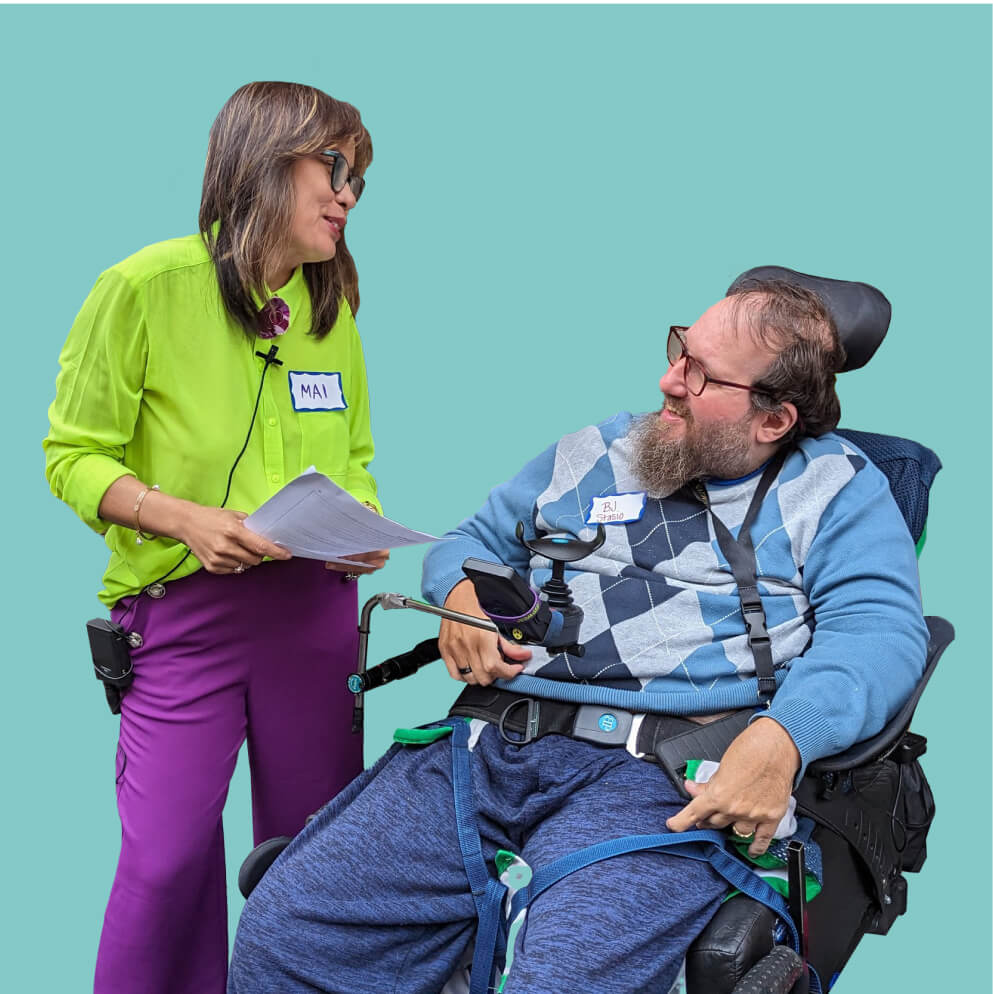
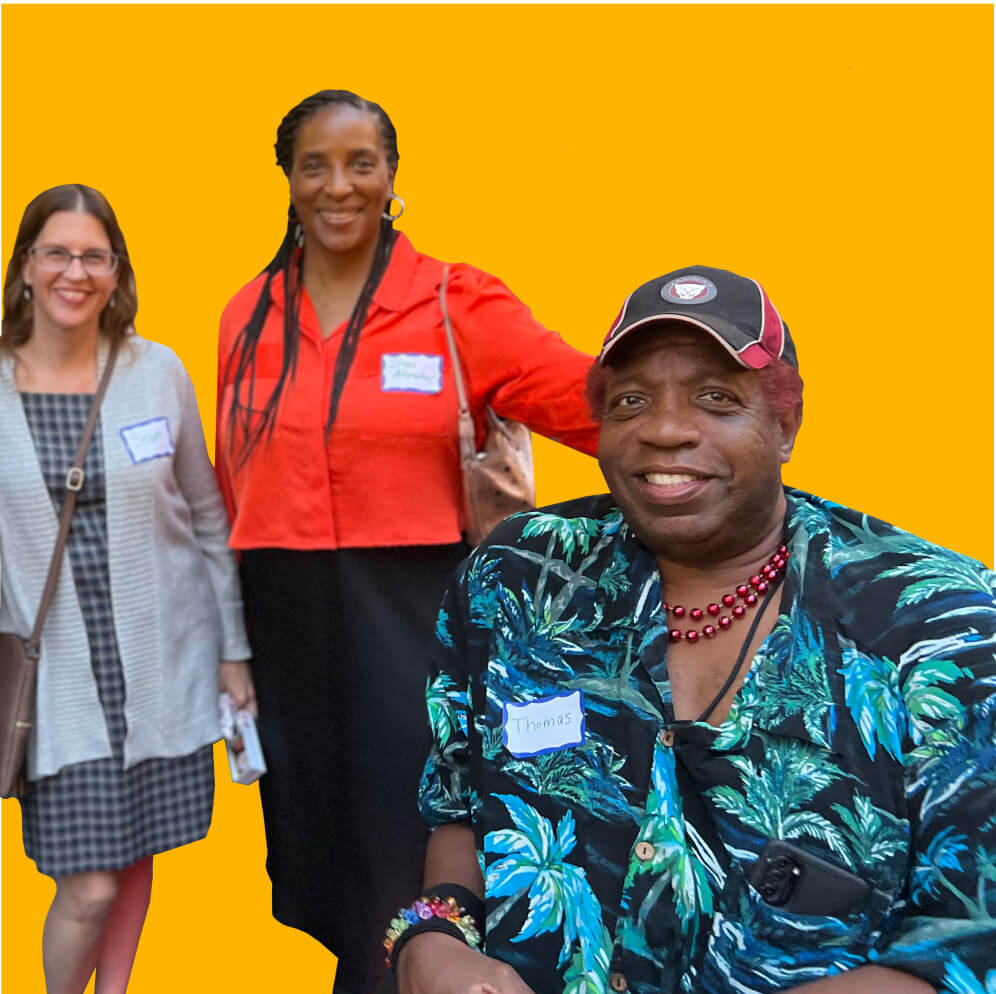
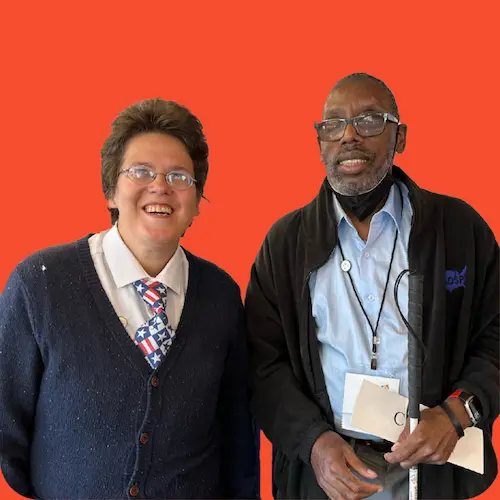
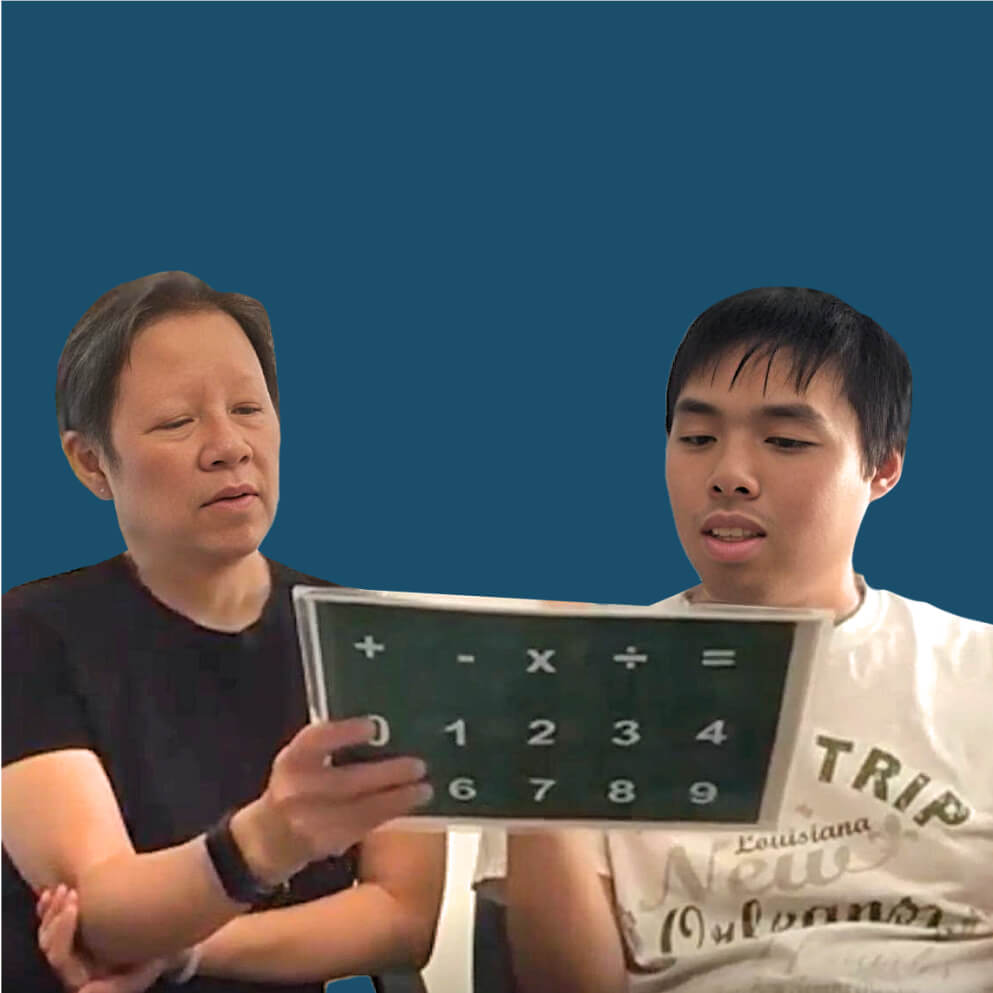
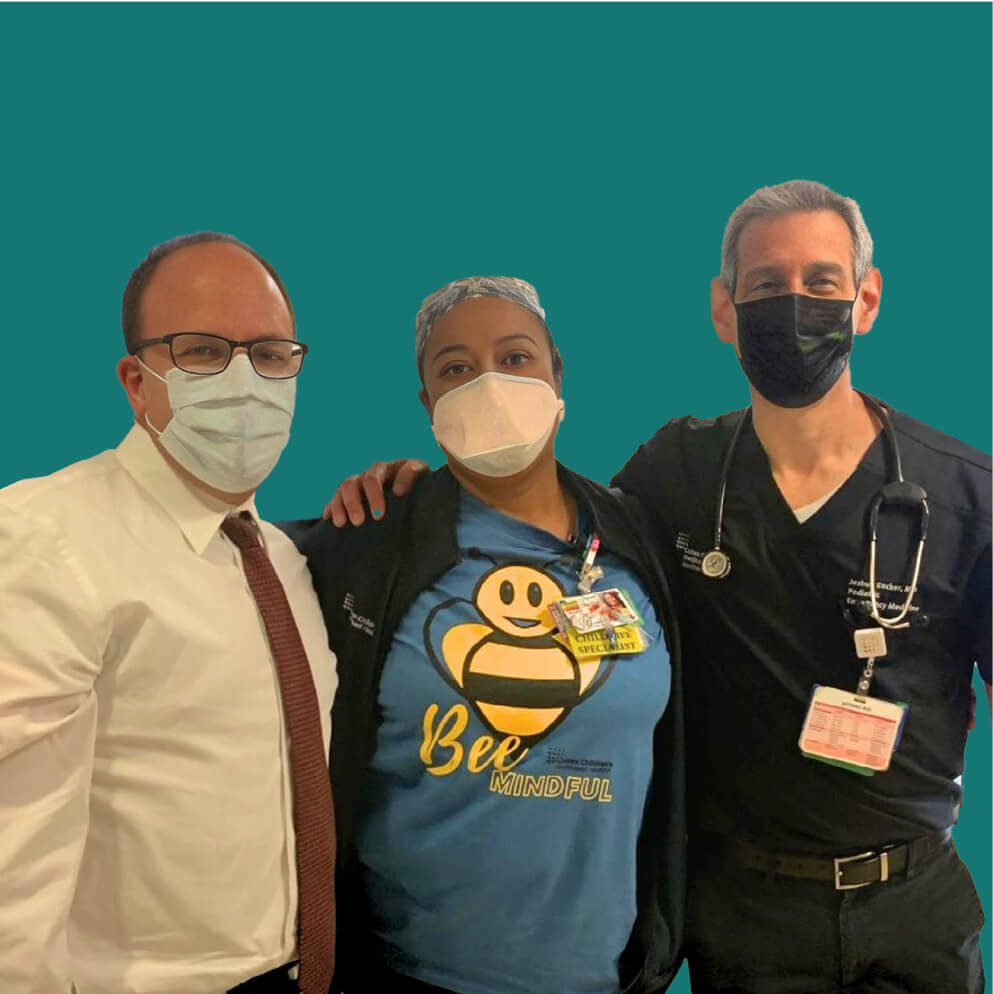
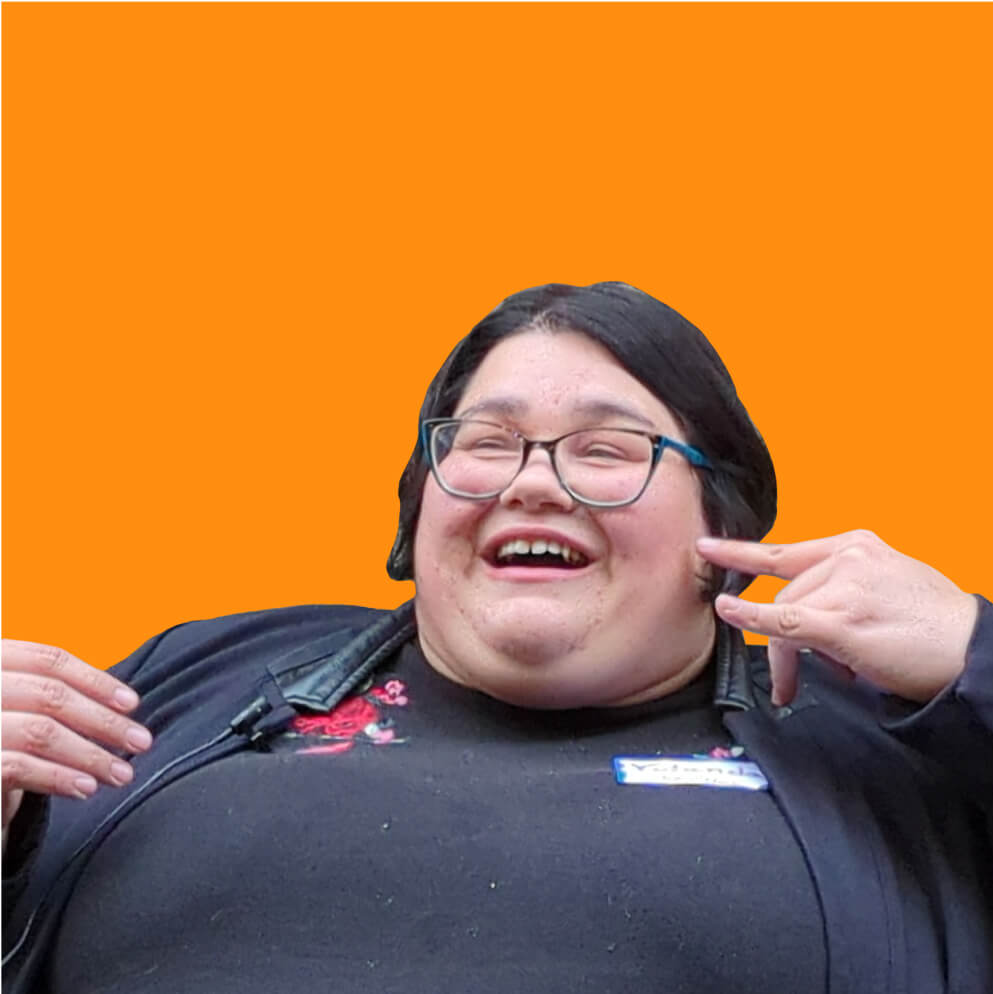
Connecting the disability and healthcare communities to transform care
Click on each to expand
Grounded in Lived Experience of IDD
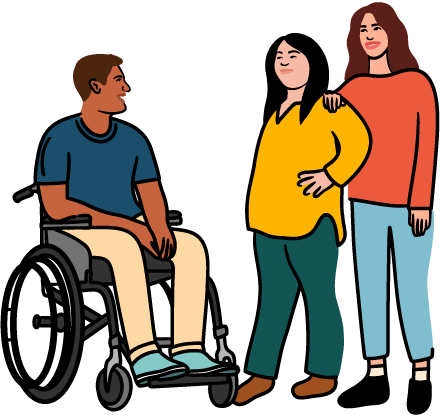
IEC’s work centers — and is led by — self-advocates with IDD, a population that includes 16 million Americans. These perspectives inform all of our programs.
Founded by Healthcare Leaders

Knowing people in healthcare and how to work with them makes it easier to drive change. We bring decades of combined experience as clinicians, payers, and agency leads.
Built on Trusted Connections
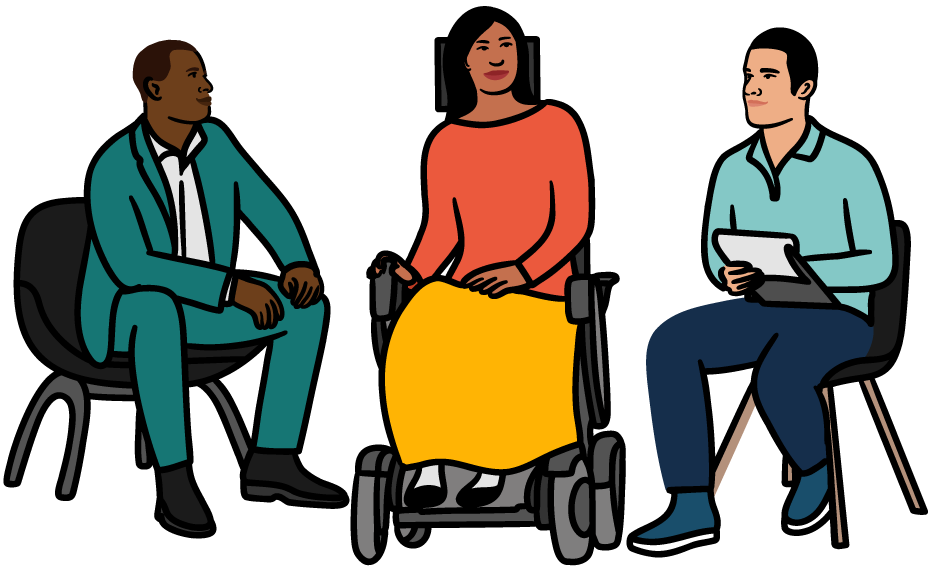
Our collaborative movement brings together people in the IDD community and healthcare professionals to identify issues with getting the best care and to create inclusive solutions.
Driven by Innovative Problem-Solving
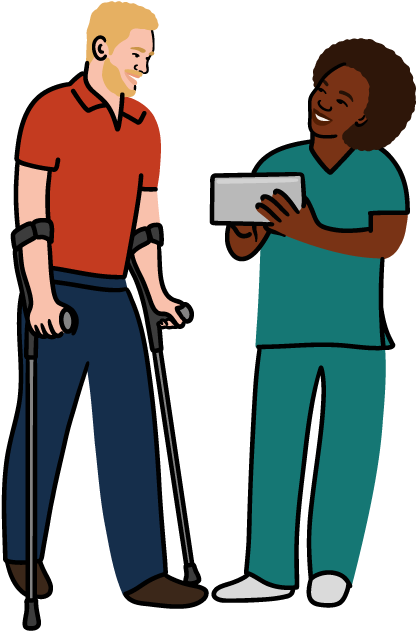
IEC creates ambitious programs with unlikely allies to improve care. Our ideas and action have earned the support of big players in healthcare and beyond.
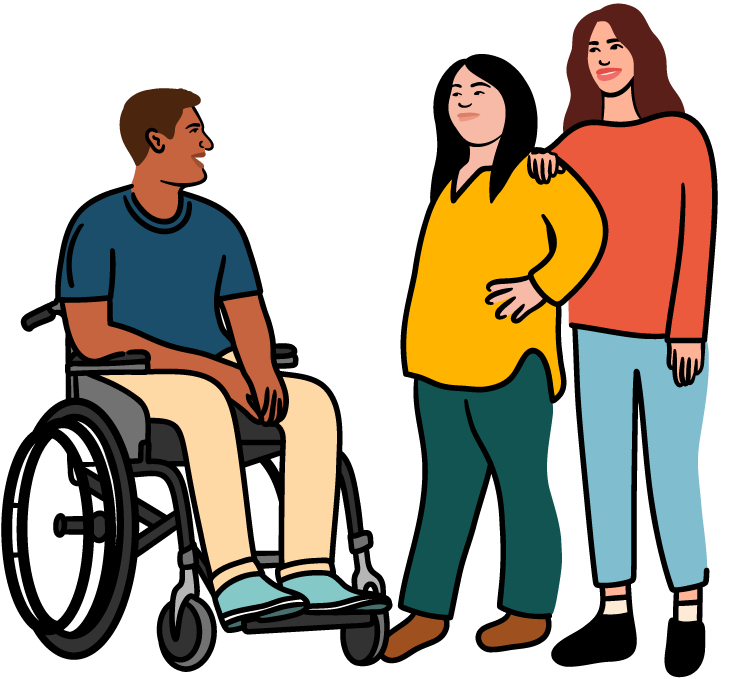



Our Priorities
We Are Working To Change How Healthcare is Taught, Delivered, and Paid For:
Taught
We aim to change how healthcare professionals are taught so that all clinicians feel confident and prepared to provide high-quality care and support for people with IDD.
Delivered
We aim to change how care is designed and delivered so that it respects the priorities and needs of people with IDD.
Paid For
We aim to change how healthcare services are paid for so that providers can deliver whole-person, coordinated care and services that meet the needs of the IDD population.

Together, We Can Drive Large-Scale, Meaningful Change in the Healthcare System
Featured News
Swipe left/right to navigate
Stay Connected
